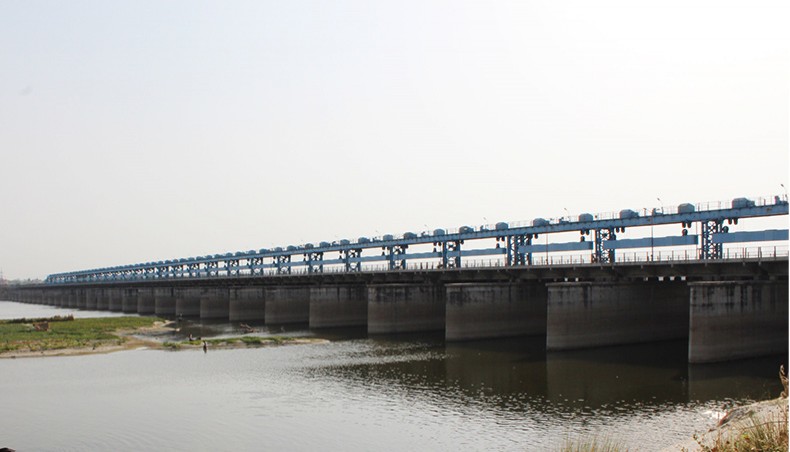Ganges Barrage construction Dhaka expects breakthrough
The government is expecting a breakthrough in the construction of Ganges Barrage in the Bangladesh side of the cross-border Padma River during prime minister Sheikh Hasina’s upcoming visit to New Delhi scheduled for April.
Officials said that during the visit, the Indian government might express its readiness to participate in the construction of the Ganges Barrage.
India is likely to dispatch a working group before the visit to discuss details of the construction of the barrage at Pangsa in Rajbari, they said.
They said that they found Indian external affairs secretary S Jaishankar positive about Bangladesh’s plan for the Ganges Barrage while setting agendas, in Dhaka on Thursday, for discussions between the prime ministers of the two countries.
‘Indeed they are positive,’ foreign secretary M Shahidul Haque said replying to a question about his discussions on the barrage with his counterpart Jaishankar Thursday night.
‘A working group would come,’ he said.
The two sides are yet to finalise in which form, either in an agreement or in an article of joint declaration/communiqué, the two countries would express their readiness to jointly construct the barrage, the officials said.
Prime minister Hasina ‘invited India’s cooperation in jointly developing the Ganges Barrage,’ according to article 18 of the joint declaration issued after the official visit of Indian prime minister counterpart Narendra Modi in Dhaka in June 2005. Modi had replied that the concerned agencies in India would examine the matter.
Hasina would be in New Delhi on a reciprocal visit by the first half of April, the officials said.
Bangladesh has already completed a feasibility study for the barrage and prepared a detailed design with provisions for checking saltwater intrusion from the sea, irrigating crop fields and preserving the biodiversity of the Sunderbans, the world’s largest mangrove forest.
Hasina said in April 2015 that the Ganges Barrage would be a joint project of Bangladesh and India.
Bangladesh has already shared all study reports on the barrage with India.
Bangladesh has agreed an Indian proposal for a joint survey in their side of the cross-border river Padma for the construction of the Ganges Barrage.
A technical committee from India made the proposal after a visit to the proposed barrage site in October 2016 to get assured that construction of such a barrage in Bangladesh would not affect India, said Bangladesh Water Development Board officials.
India’s main concern was whether the proposed barrage would have any adverse impact on its side of the river, said state minister for water resources Muhammad Nazrul Islam.
Bangladesh authorities assured the Indian government that both countries would be benefitted from the barrage, he said.
Construction of the barrage was supposed to begin in 2014 for completion in 2020 at a cost of $4 billion. The delay in starting implementation is likely to escalate the cost, project officials said.
No such survey was carried to assess the impacts of Farakka Barrage over the same river upstream in India.
In 1975, India commissioned the Farakka Barrage across the Ganges to divert water into the Bhagirathi-Hoogly rivers in West Bengal to flush silts to improve the navigability of Kolkata port, official documents show.
Due to the diversion, the flows in the Ganges, known as Padma after it enters Bangladesh, reduced considerably affecting agriculture, fishery, forestry, navigation and industrial development in the Ganges dependent areas in Bangladesh, said the officials.
Proposed agreement on sharing the Teesta river water, removal of tariff and non-tariff barriers from Bangladesh’s export to India, completion of the implementation of the land boundary agreement, use of Chittagong and Mongla seaports by India and expansion of defence cooperation are, among others, likely to get priority in the official talks between Hasina and Modi, said officials in the two capitals.
In protracted negotiations for several decades, Bangladesh has been requesting for signing a deal on sharing waters of Teesta, one of at least 54 common rivers with India.
Jaishankar, after separate meetings with prime minister Hasina and foreign secretary Shahidul Haque on Thursday, left Dhaka Friday morning.
- See more at: http://www.newagebd.net/article/9884/dhaka-expects-breakthrough#sthash.U8Yz5h10.dpuf











